
When You Want to Compost but Don’t Have the Space, This Gear Can Help
I don’t have room in my little garden for a large composter, so I found four small alternatives.
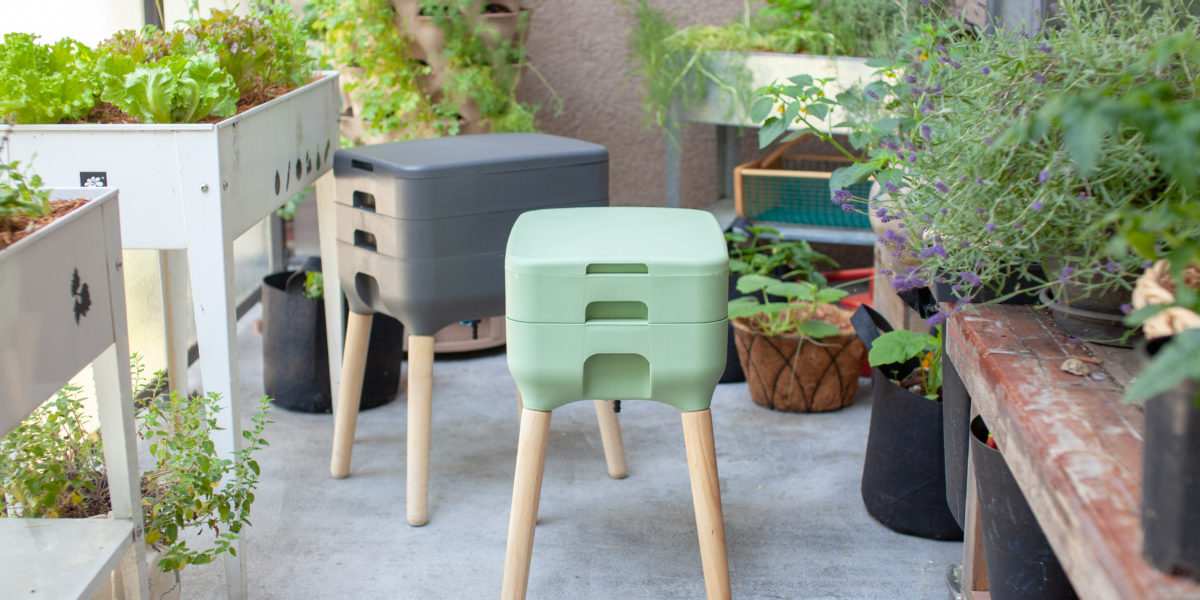
Courtesy of Eartheasy
Although I have managed to squeeze two raised beds into my garden, a full-sized compost pile won’t fit anywhere. So, I started looking for ways to compost that are more pint-sized. My reasons are multifold: I want to stop paying for compost at my local garden store when I could be making it myself; I hate throwing my food scraps in the trash (it seems like such a waste); and, if you’re in California, as I am, we have a new composting law.
As of Jan. 1, Senate Bill 1383 requires residences and businesses to separate organic waste—as in, food scraps—from their trash and put it in their green bin. This is because when organic waste goes to the landfill it generates methane, which, according to CalRecycle.gov, “has a heat-trapping effect about 80 times greater than carbon dioxide over a 20-year timeline.” (“Reducing methane emissions within 20 years,” it adds, “is necessary to avert the worst impacts of climate change.”) For those who don’t comply, fines will be charged, however, they won’t be enforced until 2024.
But will a little composter and the food scraps I’d throw in it really make that big of a difference? “It will when combined with the many others moving toward composting,” says Shannon Cowan, editor of Eartheasy, a gardening supply website. “Food waste today accounts for about 6% of greenhouse gas emissions. More than 90% of food scraps in the U.S. are tossed in the trash. We can directly impact those numbers by taking up composting.”
Plus, she adds, when you compost, “You see up close the beauty of nature’s built-in circularity. Composting makes you realize that nature has solutions for everything, and if nature can do it, so can we.”
Here, four small-scale composters I’m coveting so I can get in on the composting trend:
We only recommend things we love. If you buy something through our site, we might earn a commission.
Kitchen Composter by benefits of composting from Uncommon Goods
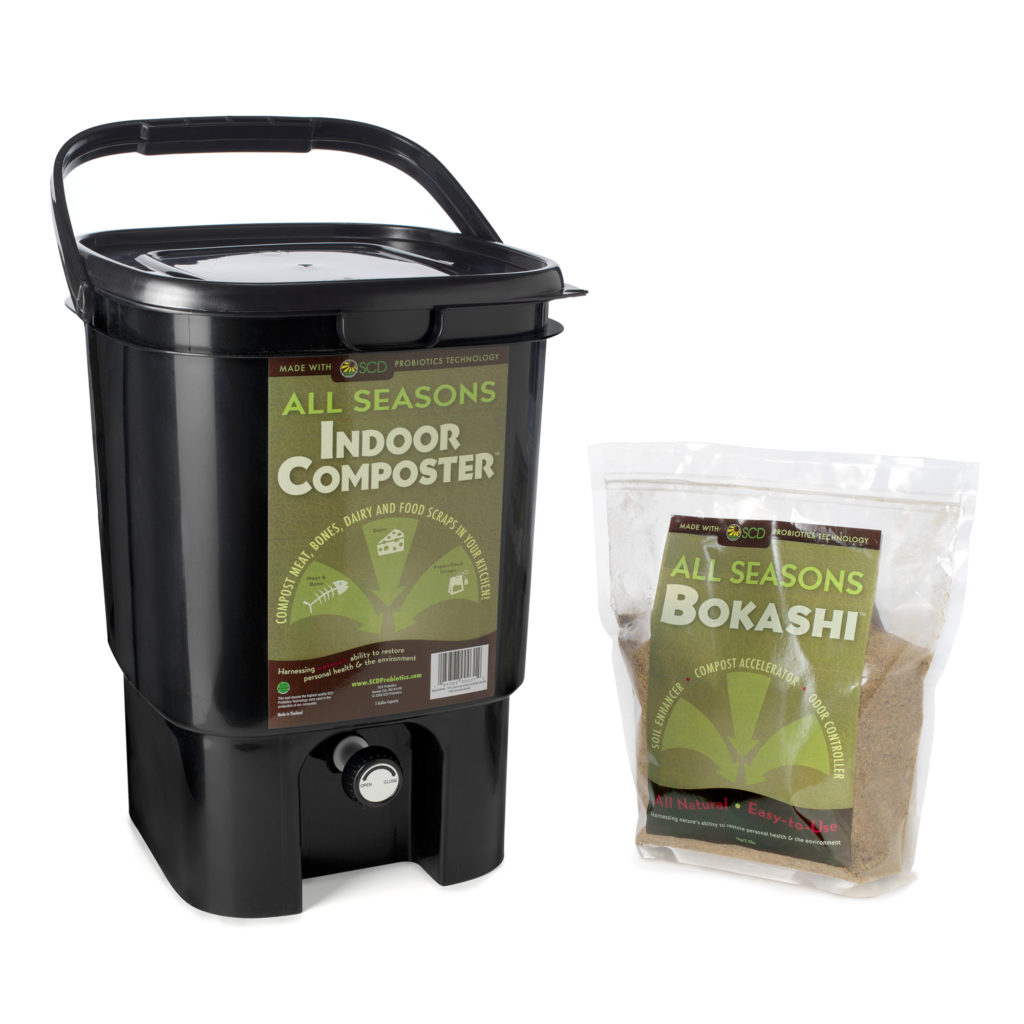
Courtesy of Uncommon Goods
I’ve been curious about this unique system for a while. It uses a Japanese method called “Bokashi,” in which micro-organisms ferment food waste in 10 days, and then the waste—which is odorless—can be buried in the garden where it will be converted into topsoil in a month or so. The liquid that it generates is drained off and used as a plant fertilizer. I love the idea of this one because it can fit under my kitchen sink, and the price is nice and low.
Subpod
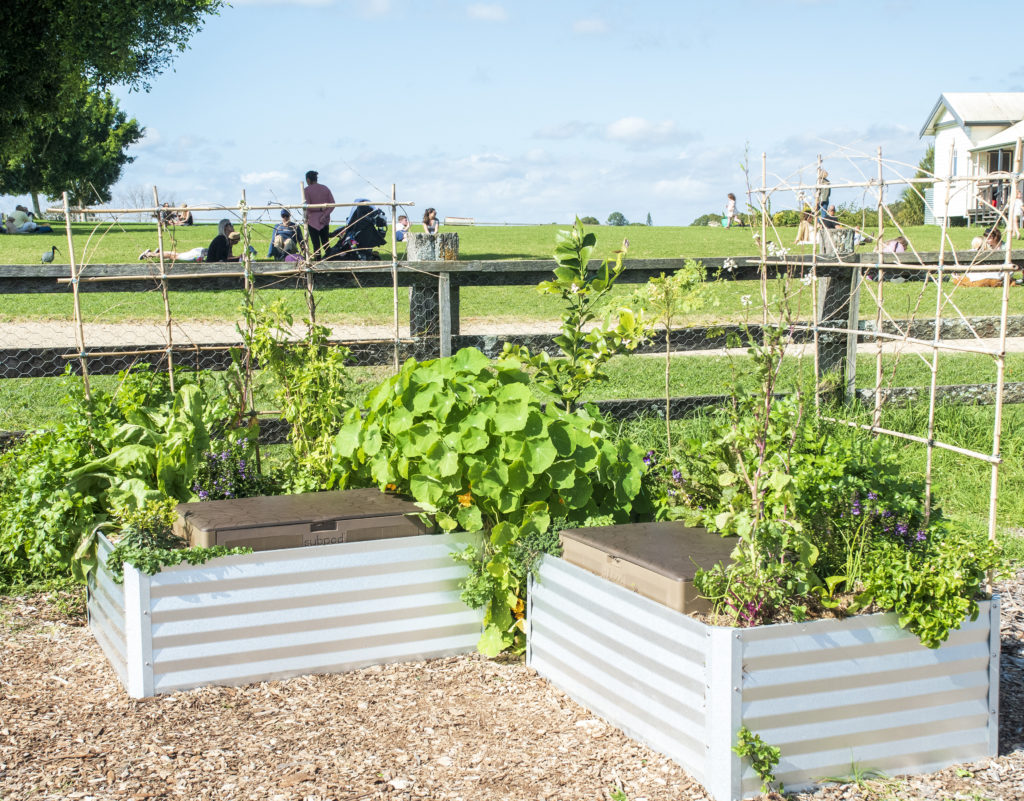
Luca Fox, Subpod
According to Subpod, you pop this baby in your raised bed and your compost won’t make a mess, raise a stink, or attract pests—all while doubling as a garden bench. I love this idea, since long ago, when I had a larger garden, I did try composting with a more traditional system and I couldn’t seem to get the mix right—it ended up rotting and stinking to high heaven. This system is in the ground and ventilated so it doesn’t overheat, which, Subpod promises, means the compost-making microbes won’t get smelly. Worms can travel in and out of this composter, bringing nutrients to your vegetables or cut flower garden as they go. Kitchen scraps, leftovers, cardboard, and more are all welcome. It comes in two sizes—one is compact and perfect for a balcony.
Lomi
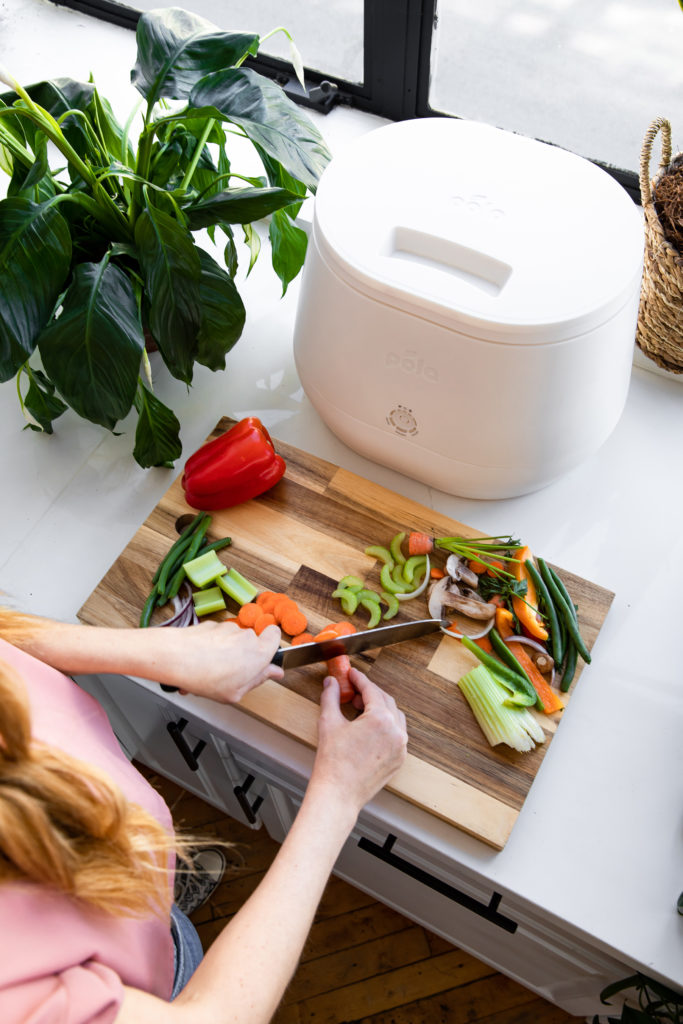
Courtesy of Lomi
Lomi is to regular composting what the iPhone is to an old corded one. It’s electric, it looks like a slow cooker that was designed by Apple, and it uses heat, abrasion, and oxygen to break down kitchen scraps so that microbes can then turn it into compost. The end result takes 16 to 20 hours and resembles dirt. I love how fast Lomi can compost and the convenience of having this right on the kitchen counter can’t be beat. The one thing that holds me back? The $499 price.
Eartheasy Dual Tray Worm Composter
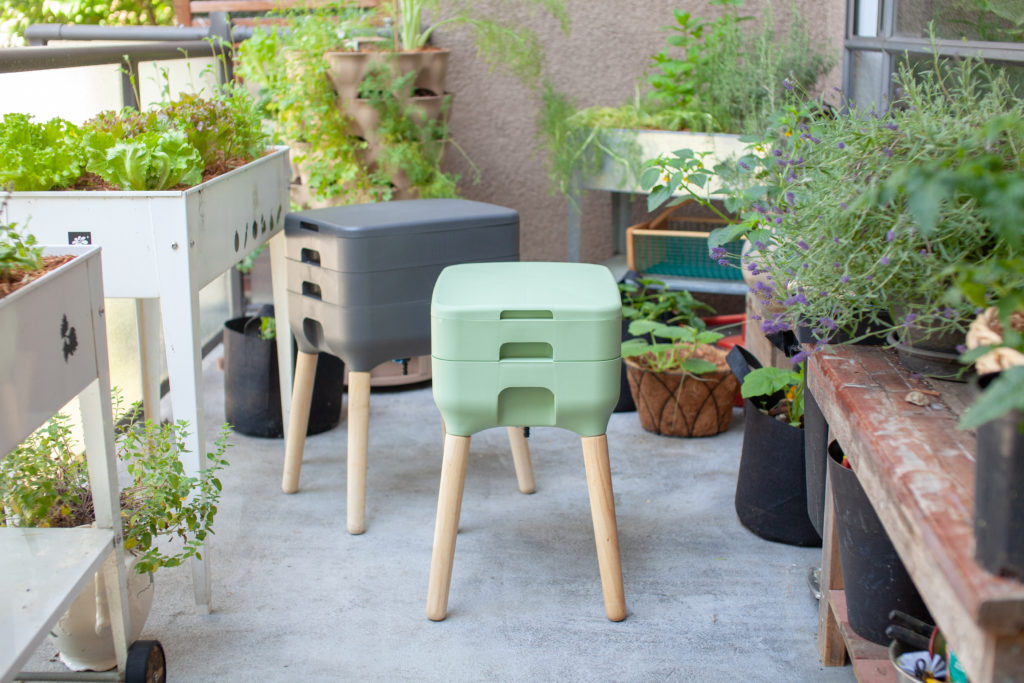
Courtesy of Eartheasy
This little vermicomposter (as in, it uses worms) is so cute it looks like it doubles as a cocktail table on my front patio while it makes compost and compost “tea” (a nutrient-filled liquid) for my raised beds. Apparently, this little baby can consume up to 5 lbs. of food waste in a week. One thing to keep in mind: Worms don’t like slimy, rotting food either, so you’re not supposed to add more than an inch of scraps at a time.
Read the Current Issue Here!
Get one year of Sunset—and all kinds of bonuses—for just $29.95. Subscribe now!
